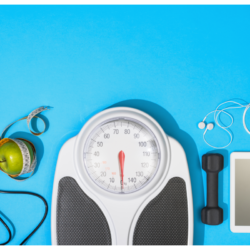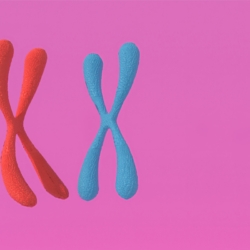On average, top athletes have higher protein requirements due to catabolic losses of lean body mass after intense or prolonged aerobic exercise. Exercise also increases calorie expenditure, and amino acids can be used as a source of energy during prolonged exercise, especially if glucose needs are not being met. Current research also indicates that athletes who participate in intensive training have protein requirements that are 1.5 to 2 times the recommended daily dose to maintain a positive nitrogen balance. This represents 105 to 140 g of protein for a 70 kg athlete.
Athletes who train at high altitudes therefore have an even higher demand for protein which is 2.2 g / kg.
5 reasons to explain why increase protein intake in athletes?
- Catabolism and protein turnover is increased by physical exertion, they are dependent on the duration and intensity of exertion
- Part of muscle energy is produced by amino acids
- Physical training can induce an increase in hormones that break down muscle fibers as well as inflammation, by generating cytokines, which are immune cells and which will attack the muscles, and this, up to several hours after exercise. effort
- Athletes are likely to have more muscle mass than sedentary people, which leads to an increase in protein requirements
- Urinary and sweat amino acid losses are increased by exercise
The need of endurance athletes:
For an endurance athlete, protein requirements are between 1.2 and 1.6 g / kg depending on the intensity and duration of the effort. In addition, protein intake should be at least 10% of daily calorie intake.
A 70 kg athlete will need 84 g of protein per day if he is training moderately and 112 g if he is training hard. From 1.8 g, the nitrogen balance becomes positive again, indicating a gain in new muscle mass.
The need of strength athletes:
For a strength athlete, protein requirements are between 1.6g and 1.7g per kg of body weight.
An 80 kg athlete will therefore need 128 to 136 g of protein per day.
How much protein per intake?
From a practical standpoint, it seems adequate to have a source of protein at each of your meals. However, this source should fill a quarter of your plate. Of course, if you do not consume animal products, you therefore need 2 different sources of plant protein, in order to ensure a full supply of essential amino acids.
Blood levels of amino acids and physical activity:
During endurance or strength sports activity, plasma amino acid levels decrease. The most amino acid destructive sport is bodybuilding.
One study showed a total decrease in amino acids of 14%, with a decrease of 20% in essential amino acid levels and 12% for non-essential amino acids. Following 5 weeks of training, the same study showed a decrease in the level of total amino acids by 19%, with an 18% drop in essential amino acid levels and 20% for non-amino acids. essential.
Before, during and after exercise:
- Before training:
It is advisable to consume lean protein, that is to say, with little fat; and digestible carbohydrates, that is, avoiding carbohydrate foods which are both important sources of fiber. Eat your snack or meal 30 minutes to 1 hour before training. Then consume, for example chicken breast and rice.
If you consume food supplements, take 20 to 40 g of protein powder, depending on your size, by combining an equal amount of whey (whey or whey protein) and casein.
If your workout is short (less than 45 minutes), try consuming protein before exercise. However, if your workout is long, try to consume protein 15 minutes before the end of your workout to combat brain fatigue and allow faster anabolic action (with the arrival of amino acids in the muscle at the end of the workout).
- During training:
During exercise, catabolism becomes intense, and the consumption of solid food, and even whey, which is a fast-absorbing protein, cannot block the catabolism, so it will be necessary to turn to casein hydrolyzate.
- After the effort:
After training, the body catabolizes and muscles actually need protein to rebuild. At this point, it is necessary to maximize the protein synthesis which starts the construction of the muscle.
For this, it is necessary that:
- Leucine status is satisfactory
- The protein source is quickly digested
- The amount of protein is sufficient
- Insulin reaches a certain threshold
At this time, you can therefore consume 40g of protein, to which you can add 5g of leucine (unless you consume BCAAs during your workout).
We advise you :
- Take whey immediately after training followed an hour after a solid meal, or
- Immediately take a solid meal supplemented with leucine.
Tips: Try consuming a mixture of casein and whey if your next meal is too far away.
If you have eaten before and during your workout, your muscle glycogen stores will be reduced, but significantly less than if you had not eaten. This will aid recovery and anabolism.
It should be noted that the combined use of carbohydrates and protein after training notably increases nitrogen retention. Carbohydrates protect amino acids from being broken down as they pass through the digestive system. This is because the consumption of carbohydrate indeed increases the insulin response and thus reduces the time for protein digestion.
Sources :
- Gundill M, Delavier F. Guide des compléments alimentaires pour sportifs. 2ème édition. Paris : Vigot ; 2012
- Schoenfeld BJ, Aragon A, Wilborn C, Urbina SL, Hayward SE, Krieger J. Pre- versus post-exercise protein intake has similar effects on muscular adaptations. PeerJ. 2017 Jan 3;5:e2825. doi: 10.7717/peerj.2825. eCollection 2017
- Kohlstadt I. Scientific Evidence for Musculoskeletal, Bariatric, and Sports Nutrition. Taylor and Francis ; 2006







